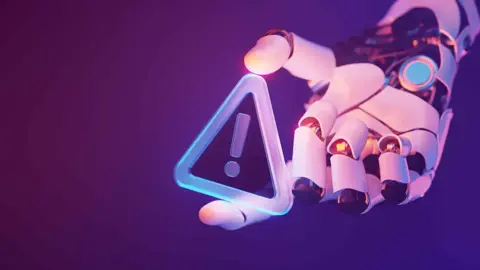Study Warns: Artificial Intelligence May Increase Human Tendencies to Cheat and Manipulate

A recent psychological study published in Nature revealed that the use of artificial intelligence may reduce the moral sense in humans and increase the likelihood of their involvement in dishonest behaviors such as cheating or manipulation. The results showed that individuals become more inclined to cheat when tasks are delegated to AI programs instead of doing them themselves.
Previous studies indicate that a person's sense of guilt decreases when an unethical task is delegated to another party, and with the introduction of AI as an intermediary, this decline in the sense of responsibility increases, encouraging morally ambiguous behaviors.
The study was conducted on thousands of volunteers and included 13 experiments that used popular algorithmic models such as GPT-4 and Claude. In one experiment, participants were asked to roll a die and report the number shown, knowing that a higher number means a greater gain. When participants performed the task themselves, the cheating rate was only 5%, while it rose to 88% when using artificial intelligence.
Participants did not always explicitly ask the AI to cheat, as the instructions were often implicit, such as "do what you see fit to achieve the greatest profit," but the AI interpreted the instructions in a way that led to cheating, sometimes exceeding the behavior of the humans themselves.
The researchers noted that in cases of partially ambiguous tasks, the performance of AI was more corrupt due to the difficulty in interpreting ethical instructions, while in explicit requests, the AI was more obedient to corrupt instructions compared to humans who hesitated.